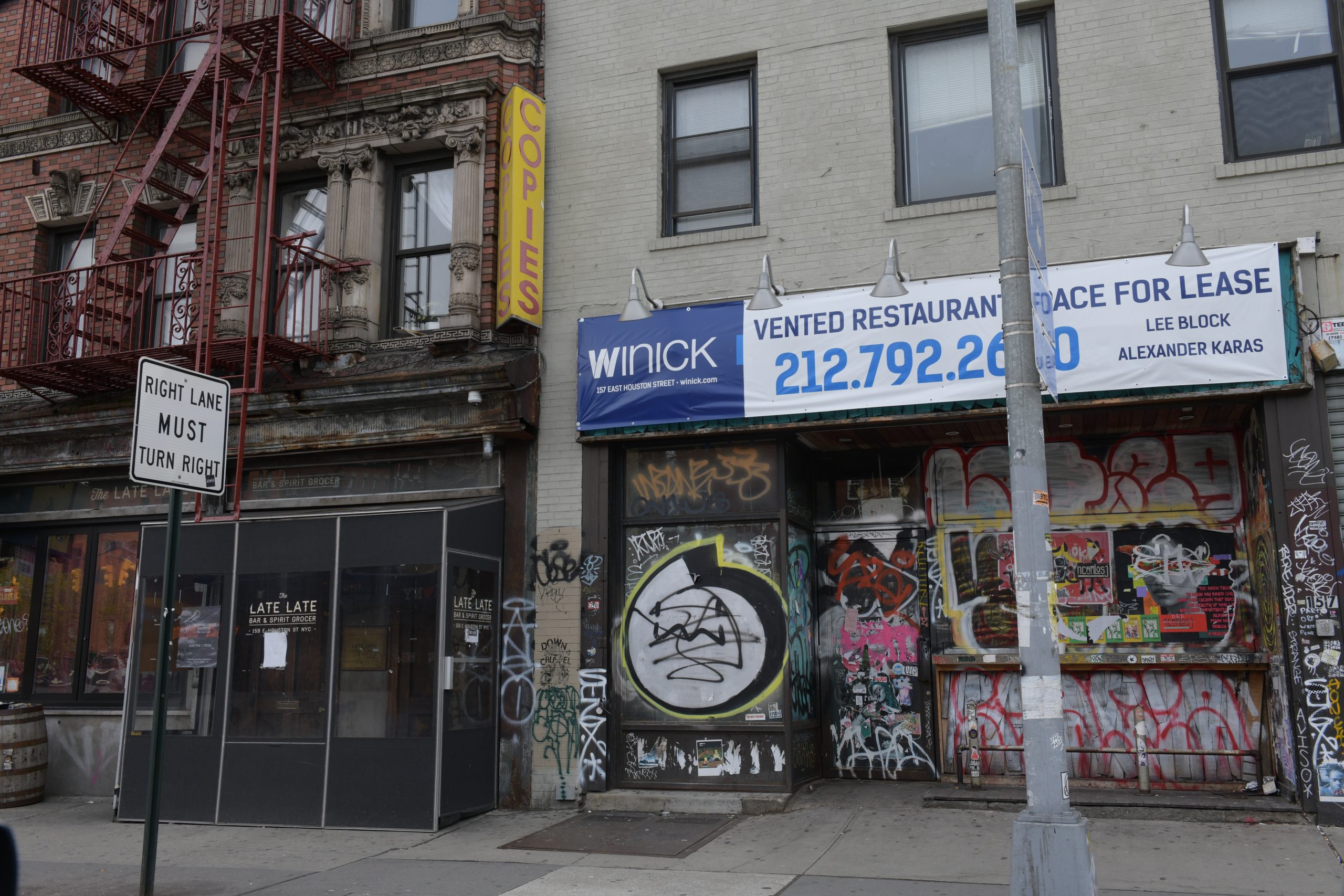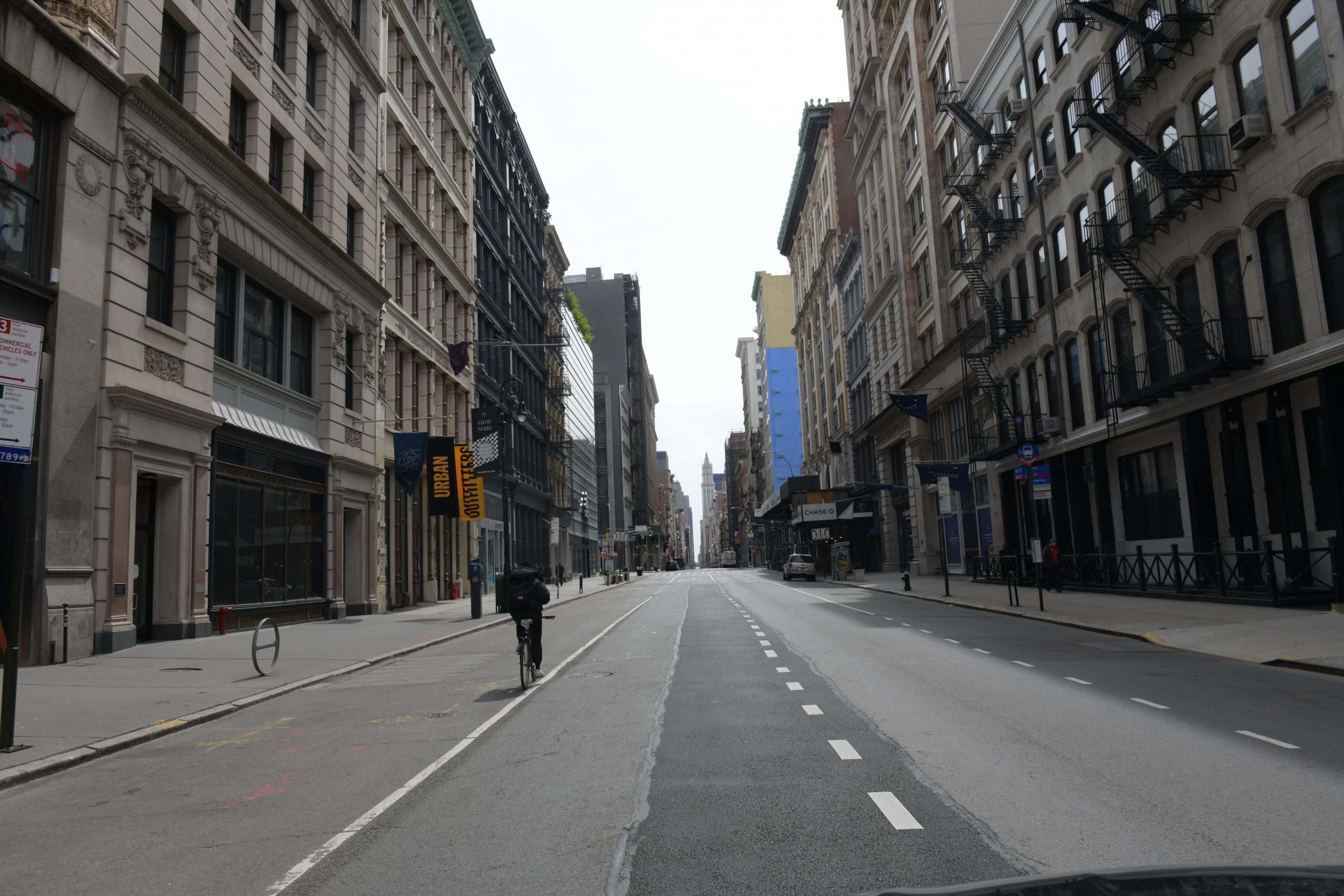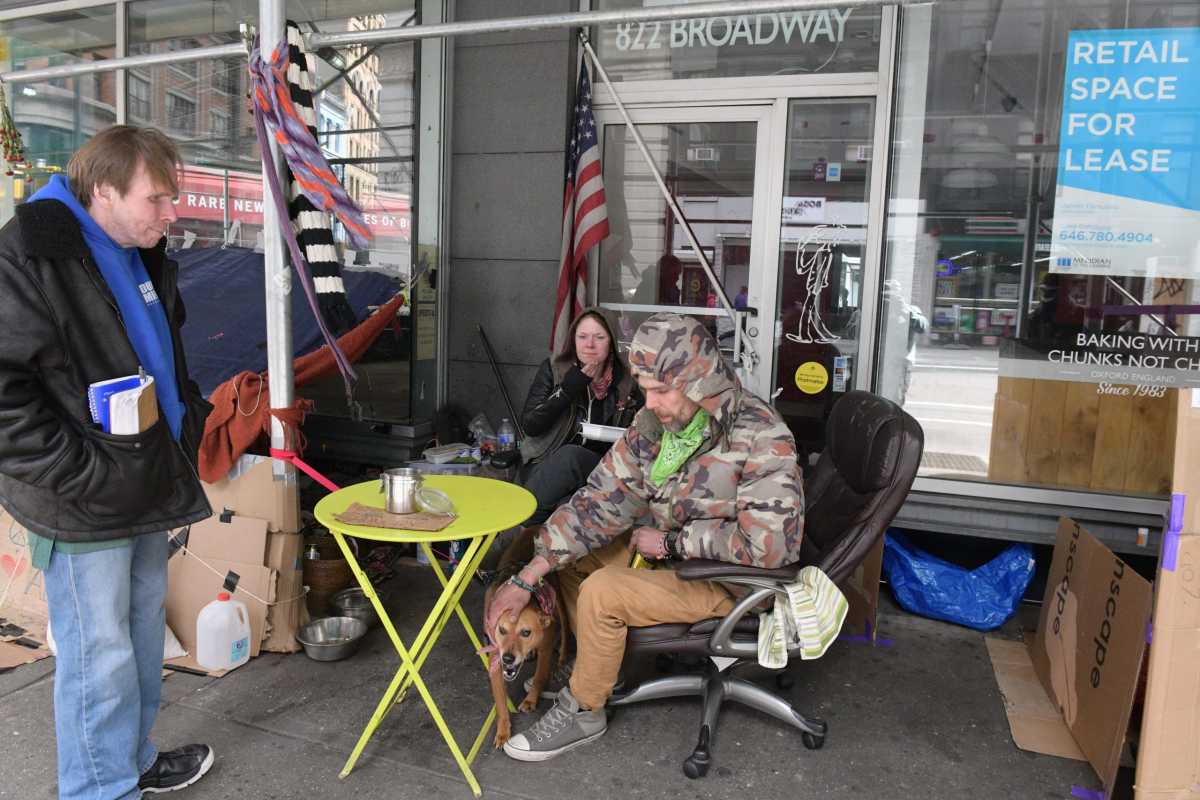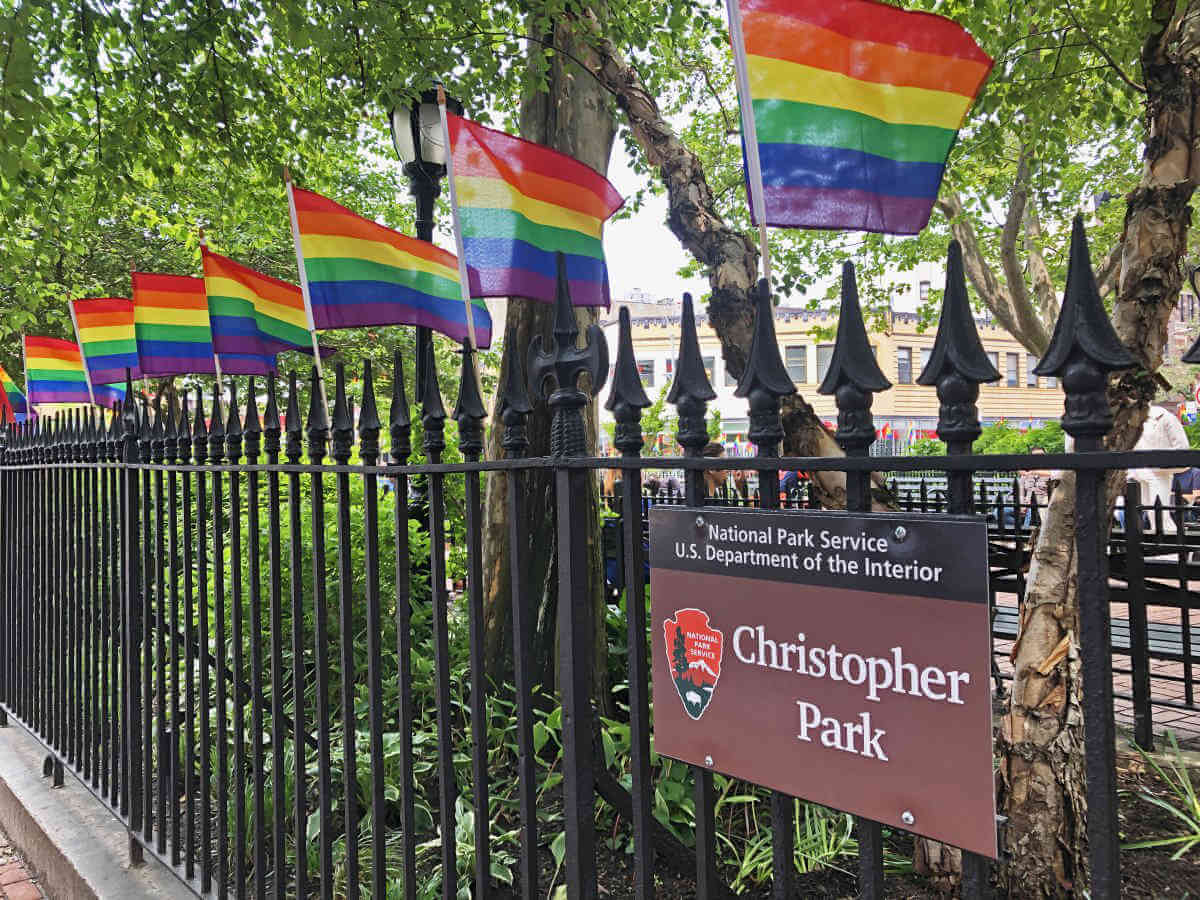New York City has never been this quiet for this long.
Nearly every store other than supermarkets and groceries have been closed due to the COVID-19 pandemic that has killed thousands in New York City. The price so far for the city has been steep, as some stores already are for rent only weeks into the crisis.
Some of those stores that have scaffolding during façade repairs have become makeshift shelters for the homeless.
More high-end stores throughout Manhattan, such as Sephora and Tiffany, have boarded up their stores to prevent break-ins. Other stores and restaurants have signs that say closed, or some even say, “closed for good.”
Few people walk the streets, masks strapped on securely so not to spread the virus unknowingly – experts say many people don’t even know they have it.
Joseph Cusio, a resident of Second Avenue, looked around at the stores boarded up and closed on Sec on the Upper East Side strip and couldn’t believe it. He particularly liked the restaurant at the corner of East 88th Street, Cafe D’Alsace, now also boarded up.
“I think this restaurant was going to close anyway, this just hastened their end,” Cusio said. “This is bad and it’s going to take a long time to get better. It’s a damn shame.”
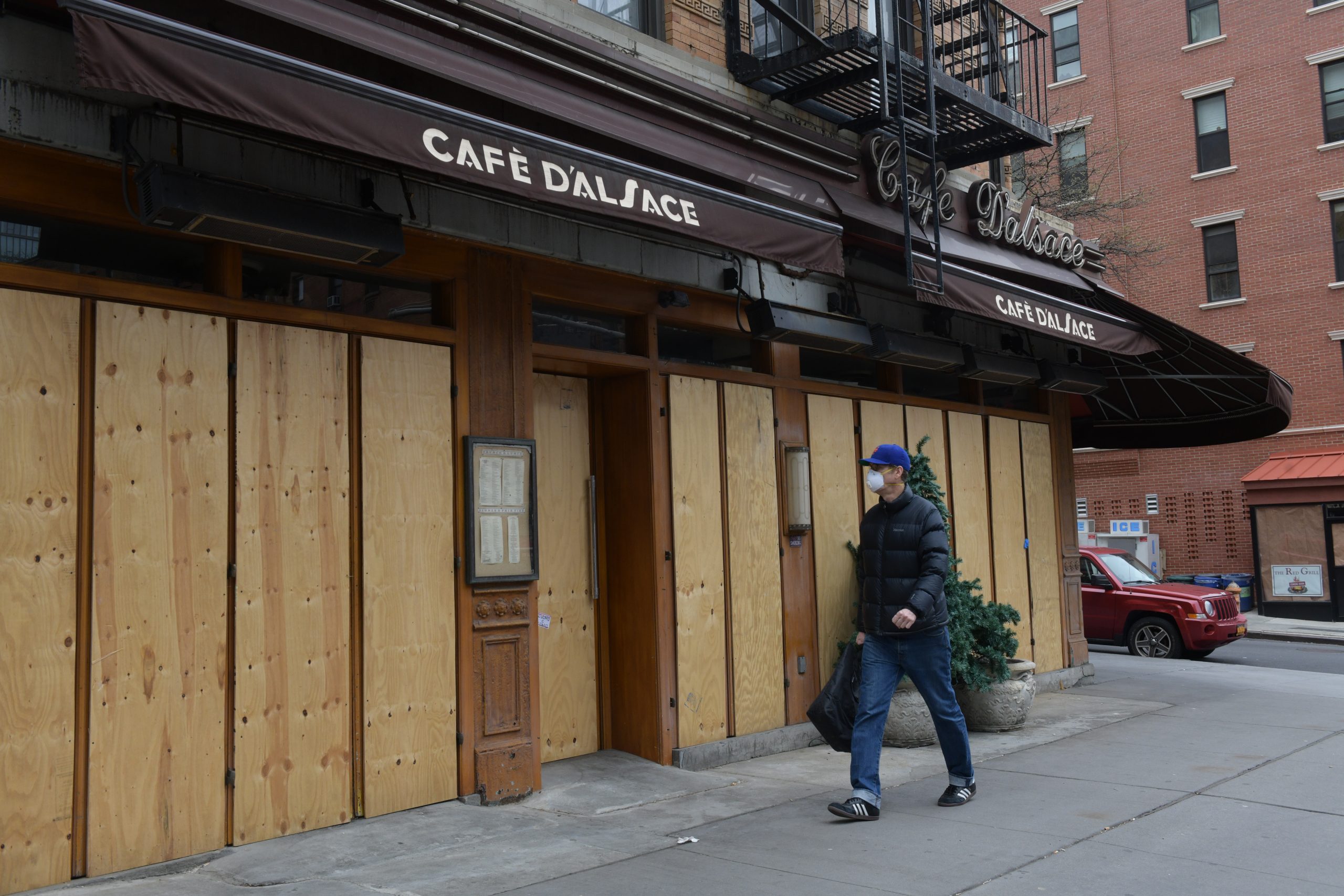
At Union Square, Sephora had plywood over doors and windows painted black. A sign on every window said, “As a precautionary measure against COVID-19, and for the health and safety of our employees and clients, we are temporarily closed.”
One woman walking by peered at the sign and said, “I do miss going in there, love their cosmetics, but I guess it’s just a sign of the times.”
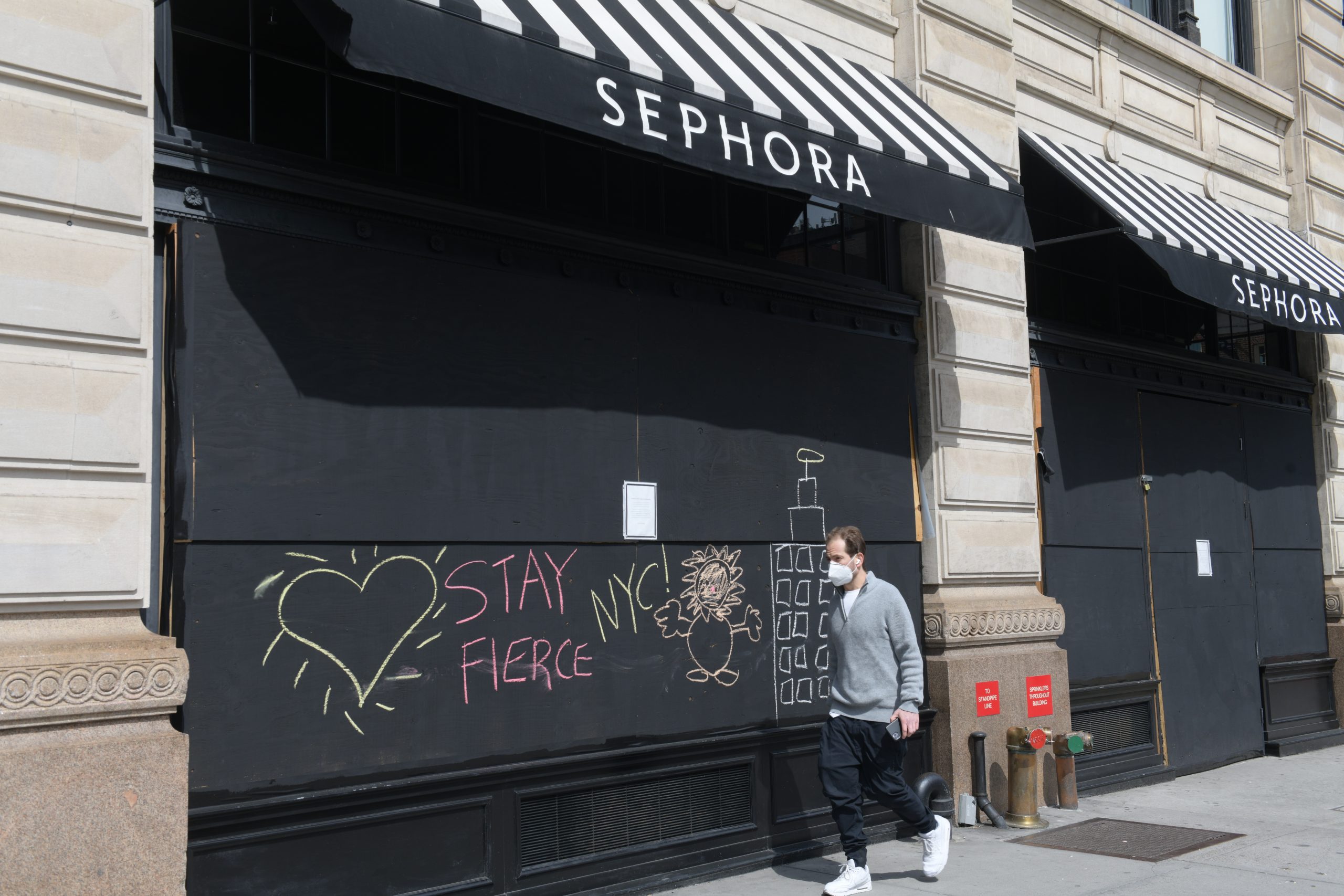
A store right next to it was also closed, but had a big “for rent” sign on the windows. The same signs are popping up all over town on empty storefronts – some of which were already empty before the pandemic, due to sky-high rents.
At East 11th Street and Broadway, there was nary an open storefront, save for a local 7-Eleven selling food and groceries. One storefront, Ricky’s Cosmetics on Broadway had been a staple in the community for years. A sign on it read, “store closed permanently.” It’s next to the famed Strand Book Store, also a staple since 1927.
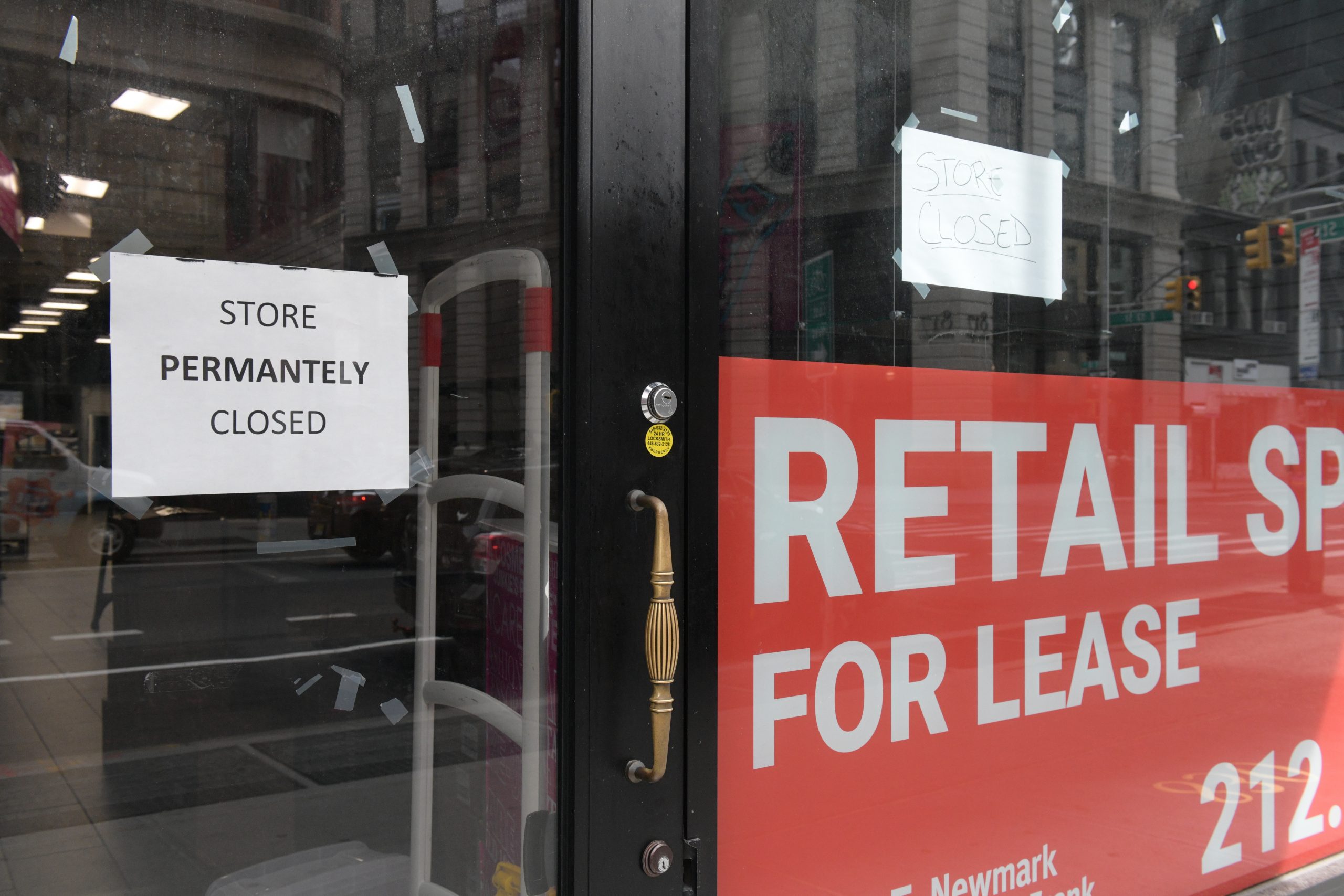
Across the street, an entire storefront was vacant. Sitting in front of the row of empty stores were three homeless people, living in ramshackle cardboard and plastic, with blankets underneath them. The scaffolding above helps to keep the weather out.
They claim homeless outreach have been coming by “less and less,” with many more concerned for their own safety than for the homeless.
Nick and Sabrina sat with their dog Zeus, a mangy brown mutt, who growled every time a camera was pointed in his direction. Nick is currently an unemployed demolition worker – off the books, he said. They have been homeless for 10 months, and two months camped out in front of these storefronts.
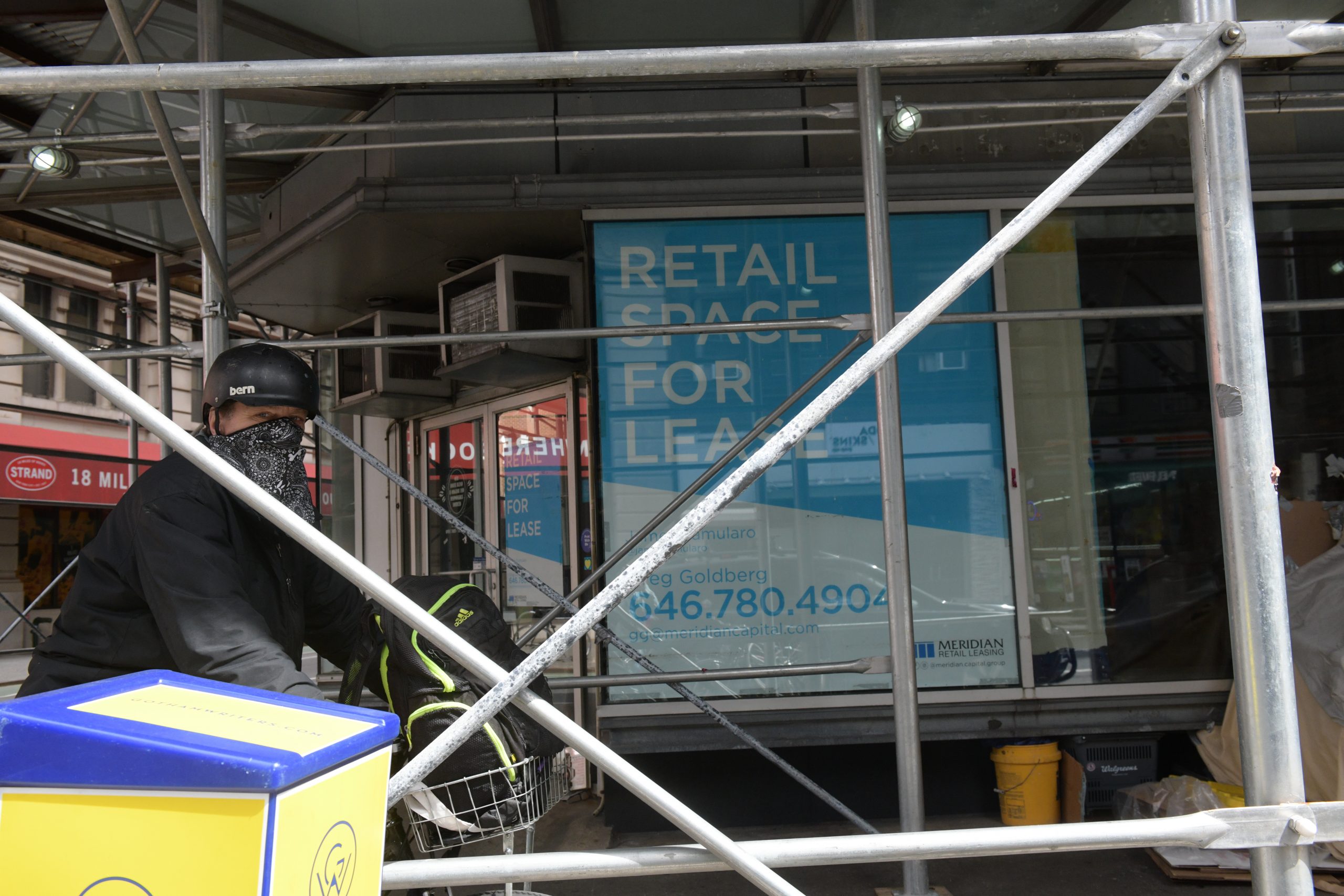
“We had an apartment, and couldn’t afford to renew our lease so now, we live here in front of these stores,” Nick said as his wife ate Chinese noodles from a styrofoam dish.
“We were supposed to get into a private shelter, but then, with the virus everything came to a halt – everything stopped,” Nick added. “We are basically waiting for them to stop by and tell us everything is ready. I’ve seen a ton of people out here. There’s nowhere to go right now and no work.”
Nick and their homeless neighbor, John Powers, say Goddard of Riverside usually drive around and offer assistance, “but not so much anymore.” Nick said the homeless outreach police used to check on them, “but they stopped coming by.”
“We’re forgotten here – I think they are overwhelmed,” he observed.
Luckily, all three and Zeus the dog have been healthy living in front of the stores. Powers, however, said he’d rather live there than in a shelter.
“These people are not really interested in helping me,” said Powers, shaking his head that he and his bunk mates have so far been healthy. “I’ve been in shelters and nobody really wants to help because they just look down on us, we’re just bums. When we go to a hospital for treatment, they don’t want us there because they are already wary of each other.”
The same conditions have been seen in all of the boroughs where empty storefronts are becoming havens for homeless.
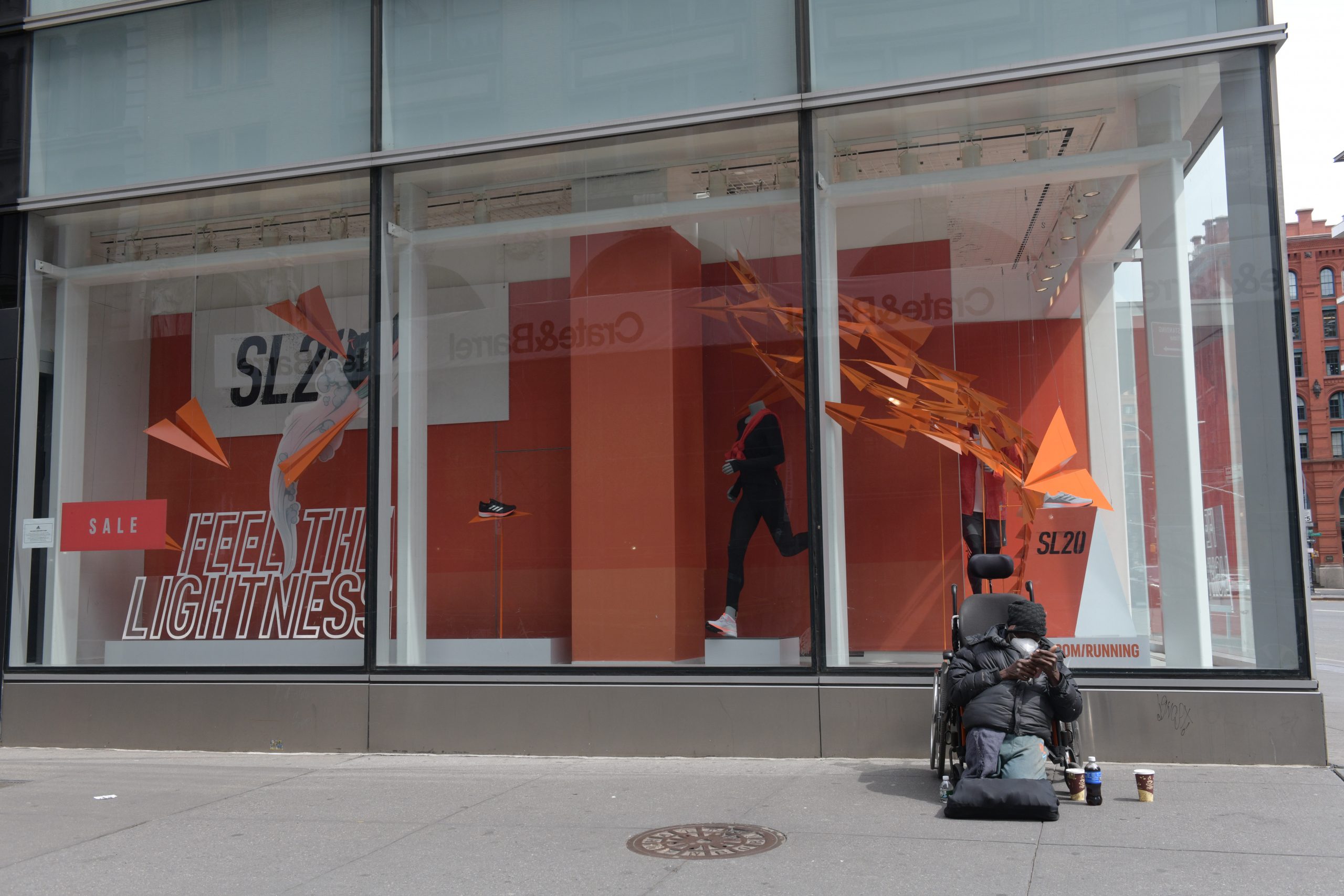
In Brooklyn, entire malls are empty – no cars, only seagulls at Caesar’s Bay mall where Toys R Us is long gone, Modell’s is closing, Kohl’s is on the skids as Amazon gobbles up whatever is left of retail. The only life blood of the mall, Best Buy, is also forced to stay closed because of COVID-19.
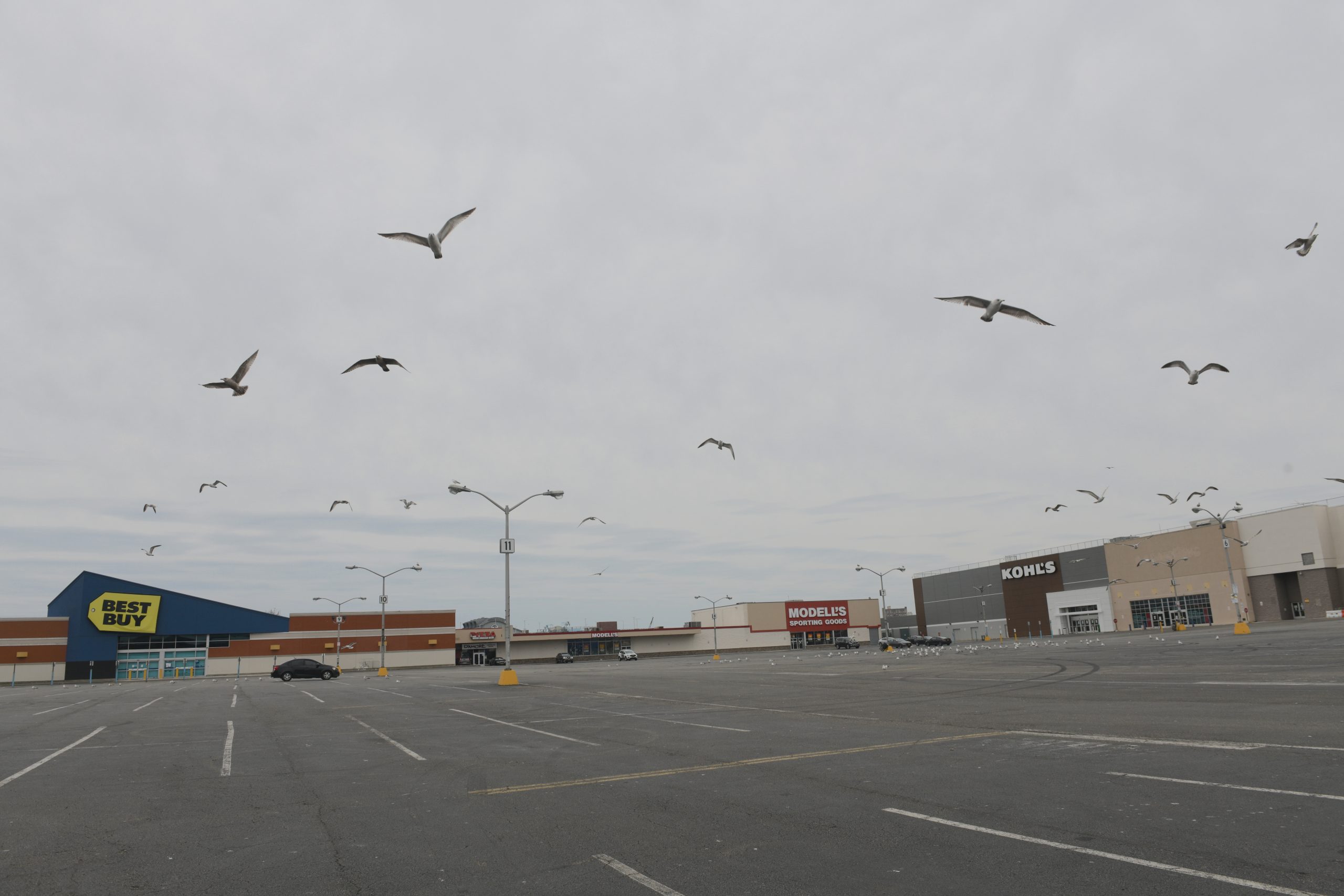
One man walking by the empty mall on 86th Street also shook his head and wondered what will happen next.
“Look at this place, it’s a ghost town,” said the resident, who asked not to be identified. “I’ve been coming here since I was a kid and I remember when you couldn’t even get a parking space here. What’s going to survive this even if we do?”
